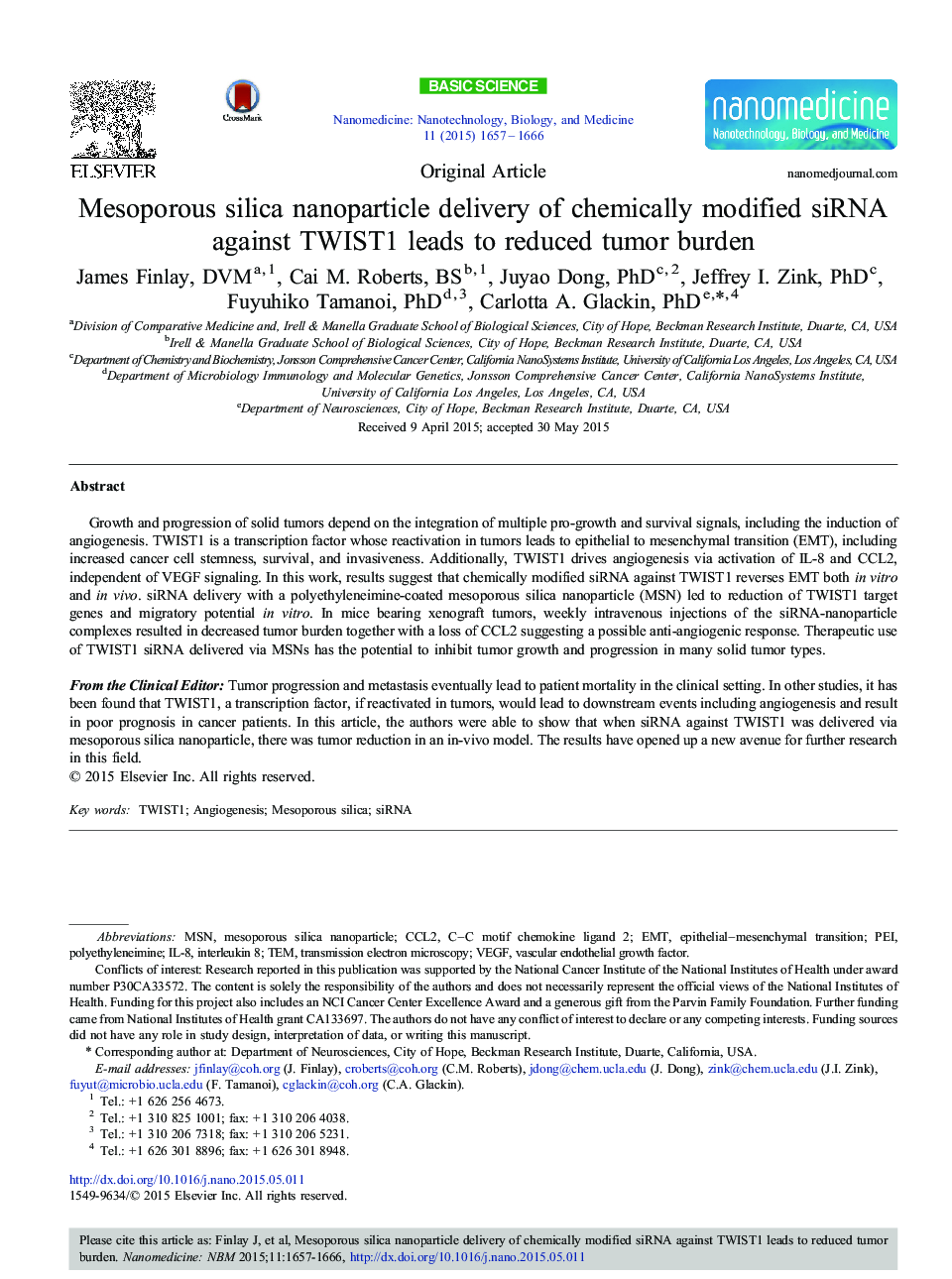| کد مقاله | کد نشریه | سال انتشار | مقاله انگلیسی | نسخه تمام متن |
|---|---|---|---|---|
| 877398 | 911024 | 2015 | 10 صفحه PDF | دانلود رایگان |

Growth and progression of solid tumors depend on the integration of multiple pro-growth and survival signals, including the induction of angiogenesis. TWIST1 is a transcription factor whose reactivation in tumors leads to epithelial to mesenchymal transition (EMT), including increased cancer cell stemness, survival, and invasiveness. Additionally, TWIST1 drives angiogenesis via activation of IL-8 and CCL2, independent of VEGF signaling. In this work, results suggest that chemically modified siRNA against TWIST1 reverses EMT both in vitro and in vivo. siRNA delivery with a polyethyleneimine-coated mesoporous silica nanoparticle (MSN) led to reduction of TWIST1 target genes and migratory potential in vitro. In mice bearing xenograft tumors, weekly intravenous injections of the siRNA-nanoparticle complexes resulted in decreased tumor burden together with a loss of CCL2 suggesting a possible anti-angiogenic response. Therapeutic use of TWIST1 siRNA delivered via MSNs has the potential to inhibit tumor growth and progression in many solid tumor types.From the Clinical EditorTumor progression and metastasis eventually lead to patient mortality in the clinical setting. In other studies, it has been found that TWIST1, a transcription factor, if reactivated in tumors, would lead to downstream events including angiogenesis and result in poor prognosis in cancer patients. In this article, the authors were able to show that when siRNA against TWIST1 was delivered via mesoporous silica nanoparticle, there was tumor reduction in an in-vivo model. The results have opened up a new avenue for further research in this field.
Graphical AbstractChemically modified siRNA against TWIST1 was complexed to cation-coated mesoporous silica nanoparticles and tested in vitro and in vivo. In cell culture experiments, siRNA reduced expression of TWIST1 and its target genes, and reduced cell migration. In mice, injections of the siRNA-nanoparticle complex led to reduced tumor weight. Data suggest that diminished tumor burden was the result of reduced CCL2 expression and angiogenesis following TWIST1 knockdown.Figure optionsDownload high-quality image (215 K)Download as PowerPoint slide
Journal: Nanomedicine: Nanotechnology, Biology and Medicine - Volume 11, Issue 7, October 2015, Pages 1657–1666